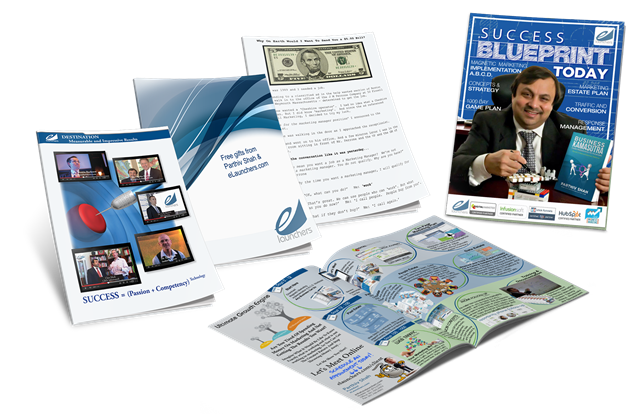Misapplication of Economic Value Added Concept
Many companies have embraced the notion that the economic-value-added concept is superior to the traditional performance assessment measures based on traditional accounting.
Economic value added, known by the acronym EVA, is a financial measurement metric that considers the relationship between the enterprise’s profitability and the cost of the capital employed to achieve that profitability. The idea behind EVA is that managers should be evaluated in terms of how effectively, productively and profitably they employ capital in the business. To evaluate profit alone without considering the cost of the capital employed to achieve that profit can be very misleading. But if the relevant content and timing factors are not appropriately considered, EVA calculations can be as distorting and misleading as traditional profitability measures.
Read More
Topics:
financial management,
Strategic Coach,
Financial Education,
business planning,
mentorship
Ignoring the Stock Price
Companies that ignore their stock price do so at their peril.
While it is crucially important to concentrate on the basic business of the company, if a company is not mindful of what happens to its stock price, it may find it is in for a rude shock. If the stock price falls too low, investors may lose confidence in management, and critical investors may sell out. If the stock price falls too low, a takeover may happen. A company needs to pay attention both to its basic business and it its stock price.
Ignoring the company’s stock price is a mistake.
Read More
Topics:
Implementation,
Business inelligence,
Strategic Coach,
Financial Education,
entrepreneurship,
business planning,
mentorship
30 Retaining the Wrong Professional Advisor
From time to time companies and senior executives inevitably are involved in circumstances that are not familiar to them. In those circumstances, it is a good idea to retain a professional advisor. But it can be disastrous if the wrong advisor is retained.
Often the decision about the advisor who is retained is much more controlling in determining the outcome that is achieved than are the merits of the strategy pursued, the potential of the new business opportunity, what diligence is employed, or how much resources are expended. If you retain the wrong advisor, you may end up with an unfortunate outcome.
Retaining the wrong advisor is a mistake.
Read More
Topics:
Business Growth,
Business inelligence,
Strategic Coach,
entrepreneurship,
mentorship
20 Exploit the Employee
Some companies operate with an exploit the employee approach.
Some companies reason that employees are out to take advantage of them, so the company should get everything it can from the employee. A company may figure that it is paying the employee good money and that therefore nothing more is due or expected. If the employee doesn’t like it, the employee can go somewhere else. After all, there are many other people the company could hire. But will an exploit the employee approach attract and keep the best employees?
Exploiting the employee can be a mistake.
Read More
Topics:
Implementation,
Business inelligence,
concepts and strategy,
Strategic Coach,
business planning
11 Promoting Traffic at the Expense of Profitability
Seeking to establish themselves in a new market, some companies may emphasize customer traffic—to the exclusion of whether they make any money on those so-called customers.
As Peter Drucker has observed, it is a fundamental business truth that the purpose of business is to create and retain a customer. But if you do not make any money on your customers, you do not have a business. Generating traffic without revenue and profitable customer transactions is a sure way to financial ruin. This lesson was relearned by many dot-com technology companies in the 1990s, who promoted traffic to their websites but failed to establish a viable business model. Numerous dot-com companies that failed did not sufficiently understand that, at the end of the day, maximizing hits is much less important than generating revenues in amounts more than the expenses incurred in
achieving those revenues, so that the business can make a profit and sustain itself.
Promoting customer traffic at the expense of good business is a mistake.
Read More
Topics:
Business Growth,
Systems and Processes,
success,
Strategic Coach,
Financial Education,
entrepreneurship,
business planning
1 Failing to Employ a Structured Decision Process
Decisions made without a structured, systematic process may be less than optimal.
Business school courses, academic textbooks, and training programs concerning decision making provide structured approaches, decision models, and tips to make better decisions. The classic approach involves defining the problem, identifying alternatives, undertaking quantitative analyses and qualitative assessments, exploring the risks, and then choosing the best course of action. While a structured decision making process is central to management, too often that approach is ignored.
Failing to employ a structured decision process can be a mistake.
Read More
Topics:
concepts and strategy,
Business Plan,
Strategic Coach,
Financial Education,
entrepreneurship,
identify your why
1 Strategic Incongruency
Strategy, to be effective, must be congruent.
If balance and consistency between different parts of the business strategy are lacking, the resulting incongruence compromises the prospects of business success. Strategy congruency means that there is a reasonable connection between one part of a strategy and another part of a strategy. The purposes of one part of the enterprise are complementary to those of another part of the enterprise. The goals of one division are supportive of, and in parallel with, the goals of another division.
Read More
Topics:
Business Growth,
success,
Business Plan,
Strategic Coach,
entrepreneurship,
mentorship
1 No Plan
A surprising number of companies operate with no plan.
If you operate with no plan, you are proceeding in reliance on spontaneous, reactive, and even impromptu action—rather than on the basis of deliberate, considered approaches to the business. If what is to be done is not much thought about in advance, the opportunity for reflection, consideration and choosing the best way is quite limited. Without a plan, the benefits of plans—focus on priorities, assignment of responsibilities, accountability for results—cannot be realized. Enterprises with plans achieve greater and more frequent success than those that lack them. For as it has insightfully been said, failing to plan is planning to fail.
Not having a plan is a mistake.
Read More
Topics:
Business Growth,
concepts and strategy,
Strategic Coach,
entrepreneurship,
business planning
Dan is famous for teaching us that, "The money is in the list… You want to be in an ‘Income At Will’ position…
You need to build an iron fence around your herd…. You must magnetically attract the right people to you…”
So how do you do all of that?
Read More
Topics:
data science,
digital marketer,
Magnetic Marketing,
Marketing to affluent,
Strategic Coach
There are significant reasons why marketing metrics are critical. If you don’t know what works, what doesn’t, what’s weak, what’s healthy, you’re in the dark. You’re missing out on pertinent information when you don’t use them.
Read More
Topics:
digital marketer,
Marketing to affluent,
authority marketing,
Strategic Coach















